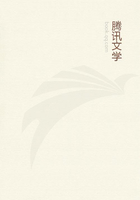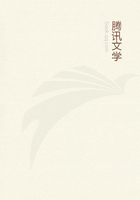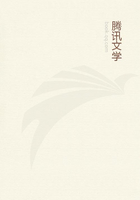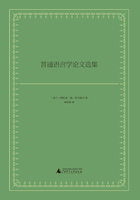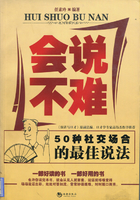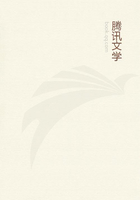The novels were published in the summer of 1613, with a dedication to the Conde de Lemos, the Maecenas of the day, and with one of those chatty confidential prefaces Cervantes was so fond of. In this, eight years and a half after the First Part of "Don Quixote" had appeared, we get the first hint of a forthcoming Second Part. "You shall see shortly," he says, "the further exploits of Don Quixote and humours of Sancho Panza." His idea of "shortly" was a somewhat elastic one, for, as we know by the date to Sancho's letter, he had barely one-half of the book completed that time twelvemonth.
But more than poems, or pastorals, or novels, it was his dramatic ambition that engrossed his thoughts. The same indomitable spirit that kept him from despair in the bagnios of Algiers, and prompted him to attempt the escape of himself and his comrades again and again, made him persevere in spite of failure and discouragement in his efforts to win the ear of the public as a dramatist. The temperament of Cervantes was essentially sanguine. The portrait he draws in the preface to the novels, with the aquiline features, chestnut hair, smooth untroubled forehead, and bright cheerful eyes, is the very portrait of a sanguine man. Nothing that the managers might say could persuade him that the merits of his plays would not be recognised at last if they were only given a fair chance. The old soldier of the Spanish Salamis was bent on being the Aeschylus of Spain. He was to found a great national drama, based on the true principles of art, that was to be the envy of all nations; he was to drive from the stage the silly, childish plays, the "mirrors of nonsense and models of folly" that were in vogue through the cupidity of the managers and shortsightedness of the authors; he was to correct and educate the public taste until it was ripe for tragedies on the model of the Greek drama- like the "Numancia" for instance- and comedies that would not only amuse but improve and instruct. All this he was to do, could he once get a hearing: there was the initial difficulty.
He shows plainly enough, too, that "Don Quixote" and the demolition of the chivalry romances was not the work that lay next his heart. He was, indeed, as he says himself in his preface, more a stepfather than a father to "Don Quixote." Never was great work so neglected by its author. That it was written carelessly, hastily, and by fits and starts, was not always his fault, but it seems clear he never read what he sent to the press. He knew how the printers had blundered, but he never took the trouble to correct them when the third edition was in progress, as a man who really cared for the child of his brain would have done. He appears to have regarded the book as little more than a mere libro de entretenimiento, an amusing book, a thing, as he says in the "Viaje," "to divert the melancholy moody heart at any time or season." No doubt he had an affection for his hero, and was very proud of Sancho Panza. It would have been strange indeed if he had not been proud of the most humorous creation in all fiction. He was proud, too, of the popularity and success of the book, and beyond measure delightful is the naivete with which he shows his pride in a dozen passages in the Second Part. But it was not the success he coveted. In all probability he would have given all the success of "Don Quixote," nay, would have seen every copy of "Don Quixote" burned in the Plaza Mayor, for one such success as Lope de Vega was enjoying on an average once a week.
And so he went on, dawdling over "Don Quixote," adding a chapter now and again, and putting it aside to turn to "Persiles and Sigismunda" -which, as we know, was to be the most entertaining book in the language, and the rival of "Theagenes and Chariclea"- or finishing off one of his darling comedies; and if Robles asked when "Don Quixote" would be ready, the answer no doubt was: En breve-shortly, there was time enough for that. At sixty-eight he was as full of life and hope and plans for the future as a boy of eighteen.
Nemesis was coming, however. He had got as far as Chapter LIX, which at his leisurely pace he could hardly have reached before October or November 1614, when there was put into his hand a small octave lately printed at Tarragona, and calling itself "Second Volume of the Ingenious Gentleman Don Quixote of La Mancha: by the Licentiate Alonso Fernandez de Avellaneda of Tordesillas." The last half of Chapter LIX and most of the following chapters of the Second Part give us some idea of the effect produced upon him, and his irritation was not likely to be lessened by the reflection that he had no one to blame but himself. Had Avellaneda, in fact, been content with merely bringing out a continuation to "Don Quixote," Cervantes would have had no reasonable grievance. His own intentions were expressed in the very vaguest language at the end of the book; nay, in his last words, "forse altro cantera con miglior plettro," he seems actually to invite some one else to continue the work, and he made no sign until eight years and a half had gone by; by which time Avellaneda's volume was no doubt written.
In fact Cervantes had no case, or a very bad one, as far as the mere continuation was concerned. But Avellaneda chose to write a preface to it, full of such coarse personal abuse as only an ill-conditioned man could pour out. He taunts Cervantes with being old, with having lost his hand, with having been in prison, with being poor, with being friendless, accuses him of envy of Lope's success, of petulance and querulousness, and so on; and it was in this that the sting lay.
Avellaneda's reason for this personal attack is obvious enough.
Whoever he may have been, it is clear that he was one of the dramatists of Lope's school, for he has the impudence to charge Cervantes with attacking him as well as Lope in his criticism on the drama. His identification has exercised the best critics and baffled all the ingenuity and research that has been brought to bear on it.

